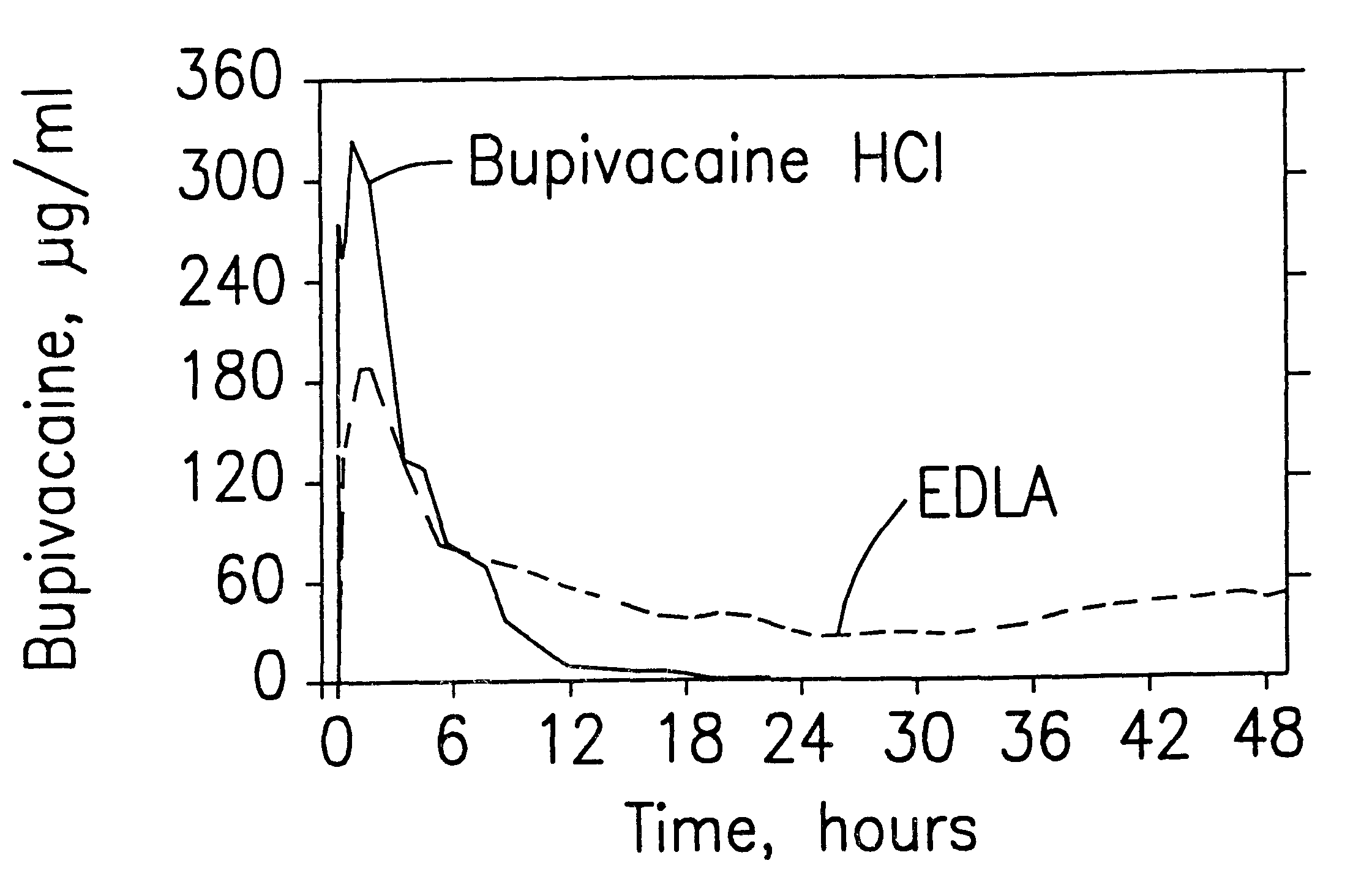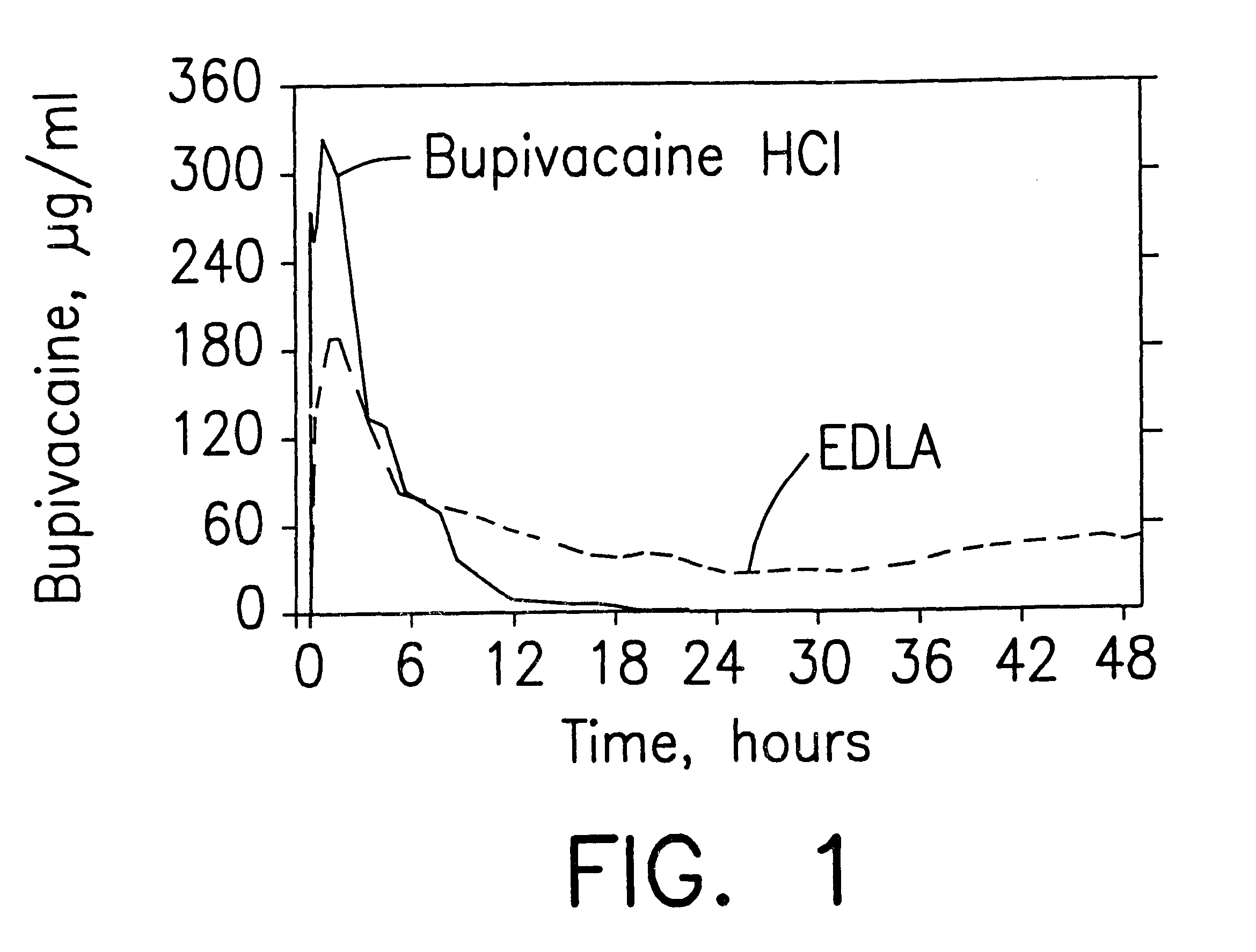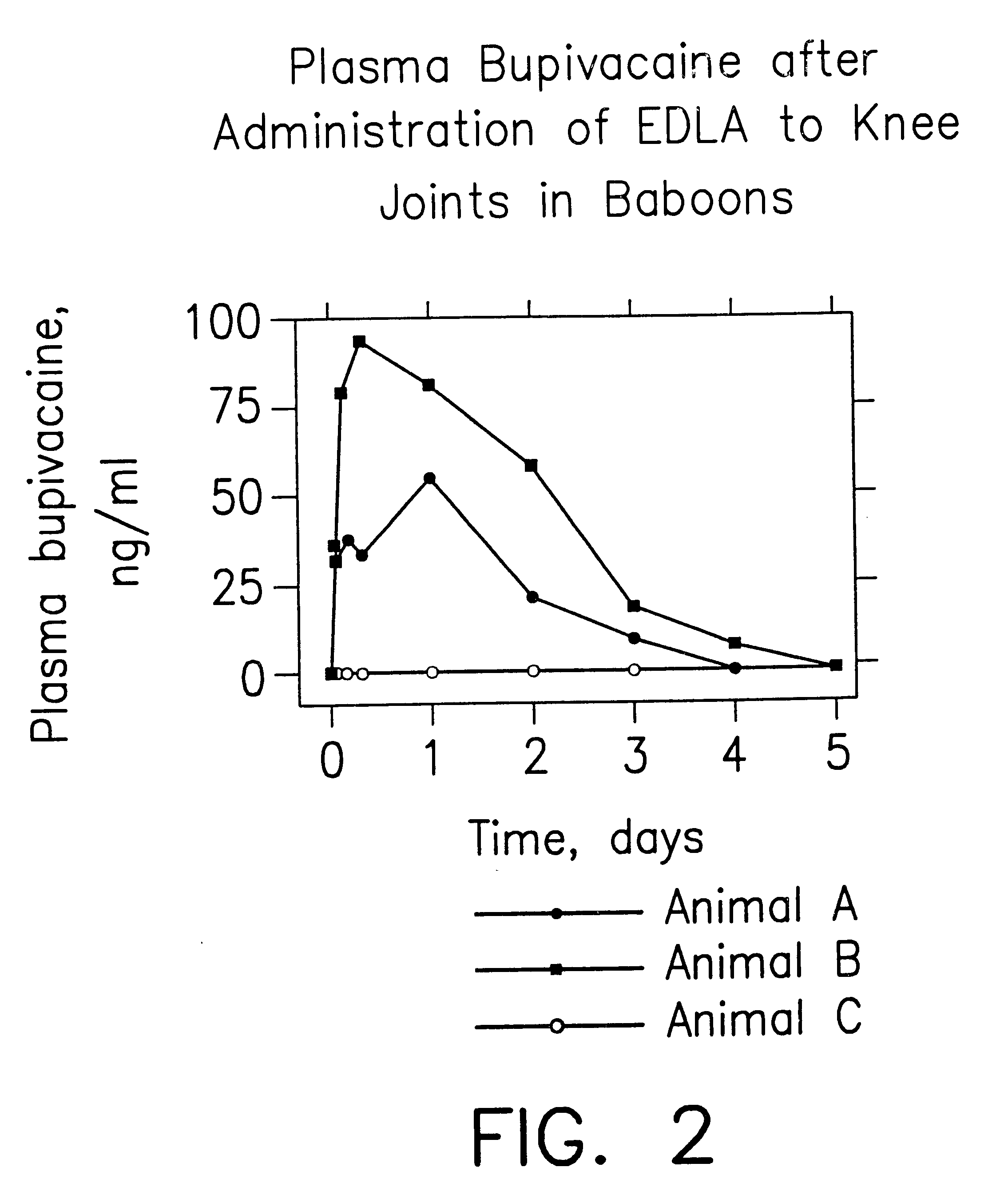Formulations and methods for providing prolonged local anesthesia
a local anesthesia and formulation technology, applied in the field of formulations and methods for providing prolonged local anesthesia, can solve the problems of severe limitation of strategy, increased pain, and increased risk of local anesthesia,
- Summary
- Abstract
- Description
- Claims
- Application Information
AI Technical Summary
Benefits of technology
Problems solved by technology
Method used
Image
Examples
examples 4-9
SPRAY-DRIED
In Examples 4-9, the bupivacaine base and the polymer utilized in Examples 1-3 are once again dissolved in ethyl acetate, but this time the microspheres are obtained by spray-drying the solution. Example 4 utilizes a relatively high drug content, whereas Example 5 utilizes a relatively low drug content. In Examples 7-9, microspheres having a substantially similar drug content to Examples 4-5 are prepared using the solvent extraction technique utilized in Examples 1-3. Details of the formulations are presented in Table 2 below.
With regard to Example 9, the actual percentage of bupivacaine base in the microspheres is 51%, the molecular weight of the 50:50 dl-PLGA polymer is 18,000, the microspheres were about 45-63 microns, and in-vitro dissolution conducted as in Examples 1-3 showed that 61% of the bupivacaine was released in 22 hours.
The microspheres of Examples 6 and 9 are suspended in a suitable injection medium (e.g., water) and then subjected to in-vitro dissolution t...
example 10
LOCAL ANESTHESIA INDUCED BY CONTROLLED RELEASE MICROSPHERES IS PROLONGED BY CO-ADMINISTRATION OF DEXTRAN AUGMENTING AGENT IN THE INJECTION SOLUTION
Microspheres are prepared which contain 75% bupivacaine, by weight. The duration of local anesthesia induced by the bupivacaine-loaded microspheres, prepared from PLGA 65:35, with and without the co-administration of an augmenting agent, is tested in a rat sciatic nerve model for localized local anesthesia. In this procedure, groups of rats are selected that demonstrate normal behavior in a leg withdrawal latency test at least a week prior to the experimental procedure. The latency test determines the time, in seconds, before a rat withdraws its hindpaw from a hotplate set to a safe but uncomfortable temperature (56.degree. C.).
Selected rats are injected with a solution containing a suspension of bupivacaine-loaded microspheres plus co-administered augmenting agent on one side and injected with a control on the contralateral side so that ...
example 11
LOCAL ANESTHESIA INDUCED BY CONTROLLED RELEASE MICROSPHERES IS PROLONGED BY CO-ADMINISTRATION OF ALKALINIZING AGENTS IN THE INJECTION SOLUTION
Preparation of microspheres and testing procedures are as described above. In this experiment it is shown that co-administration of alkalinizing agents in the injection solution serve to significantly prolong the duration of local anesthesia induced by the injection of controlled release bupivacaine-loaded microspheres adjacent to rat sciatic nerve.
A. Experimental Protocol
Twenty-four rats each receive an injection of bupivacaine-loaded controlled release microspheres into the left or right side, adjacent to the sciatic nerve, in carbonate-buffered injection solution. The contralateral side receives either bupivacaine-loaded microspheres at the same dose at pH 7.4, or unloaded microspheres with the same injection buffer as the treatment side. The pH of the experimental injection solution ranges from pH 7.0 through pH 8.3.
B. Results
The degree of...
PUM
| Property | Measurement | Unit |
|---|---|---|
| Fraction | aaaaa | aaaaa |
| Fraction | aaaaa | aaaaa |
| Fraction | aaaaa | aaaaa |
Abstract
Description
Claims
Application Information
 Login to View More
Login to View More - R&D
- Intellectual Property
- Life Sciences
- Materials
- Tech Scout
- Unparalleled Data Quality
- Higher Quality Content
- 60% Fewer Hallucinations
Browse by: Latest US Patents, China's latest patents, Technical Efficacy Thesaurus, Application Domain, Technology Topic, Popular Technical Reports.
© 2025 PatSnap. All rights reserved.Legal|Privacy policy|Modern Slavery Act Transparency Statement|Sitemap|About US| Contact US: help@patsnap.com



